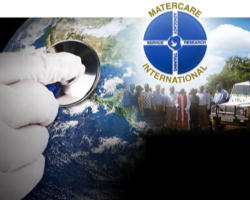Leaders and Council Members of the World Medical Association.
13, Chemin du Levant 01210 Ferney-Voltaire, France email: wma@wma.net
We, the Catholic Medical Association of Australia, thank you for the opportunity to express our concerns regarding the proposals to amend the World Medical Association’s (WMA) position regarding its ‘Statement on Physician-Assisted Suicide’ and its ‘Resolution on Euthanasia’ at the upcoming meeting in Chile.
We respectfully request that the WMA continue to state clearly that euthanasia and physician- assisted-suicide (PAS) are contrary to the ethics of the medical profession and the role of the physician to care always, to cure where possible and never to intentionally inflict death. PAS and euthanasia undermine the provision of authentic healthcare and should never be considered as medical treatment.1
We therefore ask that the WMA maintain its current positions on PAS and Euthanasia, as reaffirmed respectively at the 200th WMA Council Session, Oslo, Norway in April 20152 and at the 194th WMA Council Session in Bali, Indonesia in April 2013,3 and reject any proposals of amendment to these documents.
We, like the overwhelming majority of national medical associations and legal jurisdictions throughout the world, look to the WMA to uphold its opposition to both PAS and euthanasia and to adhere to the ancient foundations of medical ethics concerning the authentic and ethical role of the physician in end-of-life care. We hope that you will continue to reject physicians’ participation in PAS and euthanasia as an ethically unacceptable means of caring for the sick and dying, despite the mounting pressures to ratify these interventions. The ethics of medicine should not be corrupted by the prevailing agendas of state politics or social trends.
We ask that you continue to reject the proposals for a so-called ‘neutral stance’ toward PAS and euthanasia that have been put forward to the WMA by very vocal and influential minority groups within the medical community, and instead stand by the vast majority of your members, associates and ordinary physicians around the world in defending the noble ethical tradition of absolutely rejecting the participation of medical professionals in PAS and euthanasia.
We also ask that you reject the proposal to use duplicitous and ambiguous language to describe PAS and euthanasia. Terms such as “Physician-Assisted Dying”, “Voluntary Assisted Dying” and “Medical Aid/Assistance in Dying” are euphemisms deployed to obfuscate the issue, mislead and confuse the public and expedite the legalisation of PAS and euthanasia.
We conclude with a list of reasons why we believe the WMA should maintain its longstanding ethical stance against PAS and euthanasia and reject any proposals to amend its current position statements on these issues.
1 J. Donald Boudreau and Margaret Somerville: Euthanasia is not medical treatment. British Medical Bulletin, Volume 106, Issue 1, 1 June 2013, Pages 45–66 2 WMA Statement on Physician-Assisted Suicide: https://www.wma.net/policies-post/wma-statement-on-physician-assisted-suicide/ 3 WMA Resolution on Euthanasia: https://www.wma.net/policies-post/wma-resolution-on-euthanasia/
Reasons to Reject a so-called ‘Position of Neutrality’ on PAS and Euthanasia.
• There is no ‘neutral stance’ on the ethics of PAS and euthanasia4. If one is not clearly against them one is unavoidably for them in some or other form. In short, there is only one decision that can be made: that one is either for or against PAS and euthanasia; that is, one is either for or against physicians intentionally inflicting death on their patients to relieve their suffering or even their fear of future suffering5.
• A ‘neutral stance’ by the WMA would be a failure to continue to reject PAS and euthanasia as unethical and would be an absolute abrogation of its responsibility and duty to advocate for the universal provision of best practice, ethical end-of-life care, especially palliative care. The WMA would, thereby, remove itself from a position of informing and guiding both patients and physicians in future deliberations about end-of-life care based on new research and ethical reasoning in this most important area of medicine. Such a failure of leadership and advocacy for excellence in end-of-life medical care would also promote a false relationship between palliative care and euthanasia, the underlying philosophies of which are in fundamental conflict.
• A failure by the WMA to continue to reject PAS and euthanasia as unethical would constitute a grave discontinuity with its own long-established ethical position and mark a severance from almost 2,500 years of medical ethics wisdom6.
• A failure by the WMA to continue to reject PAS and euthanasia would serve to further undermine the basic human rights of physicians who conscientiously object to participating in this unethical practice, as demonstrated in the recent Canadian experience7 8.
• A failure by the WMA to continue to reject PAS and euthanasia would constitute approval of euthanasia as a legitimate medical treatment, which it is not9, and would serve to support initiatives by euthanasia advocates to implement its legalisation in more and more jurisdictions, as has recently occurred with the Canadian “Medical Assistance in Dying” experience being used to promote legalizing PAS and euthanasia in the United Kingdom10 11. In the same way, a failure by the WMA to continue to unequivocally reject PAS and euthanasia as unethical – that is, adopting a so-called ‘neutral stance’ – will inevitably serve as a means of ‘advocacy’ for its legalisation.
4 Sulmasy DP, Finlay I, Fitzgerald F, et al. Physician-assisted suicide: why neutrality by organized medicine is neither neutral nor appropriate. J Gen Intern Med 2018 Aug; 33(8): 1394-1399
5 Kelly, Brian and Burnett, Paul C. and Pelusi, Dan and Badger, Shirlene and Varghese, Francis and Robertson, Margaret M. (2003). Factors associated with the wish to hasten death: a study of patients with terminal illness. Psychological Medicine, 3(1). pp 75-81.
6 Hippocratic Oath: History of Medicine Division, National Library of Medicine, National Institutes of Health- https://www.nlm.nih.gov/hmd/greek/greek_oath.html (Accessed 15/2/2019) 7 Sonier F. Physicians seek leave to appeal Ontario court ruling against physician freedom of conscience. Canadian Physicians for Life, 2 March, 2018
8 Leiva R, Cottle M, Ferrier C, et al. Euthanasia in Canada: A Cautionary Tale. World Medical Journal 2018: 17- 23. 9 J. Donald Boudreau and Margaret Somerville: Euthanasia is not medical treatment. British Medical Bulletin, Volume 106, Issue 1, 1 June 2013, Pages 45–66
10 Blackmer J. Commentary: How the Canadian Medical Association found a third way to support all its members on assisted dying. BMJ 2019;364:l415
11 Buchman S. Why I decided to provide assisted dying: it is truly patient centred care. BMJ 2019;364:l412
Reasons to Continue to Oppose PAS and Euthanasia.
Continuing to oppose PAS and euthanasia….
• shows support and genuine concern for the care and wellbeing of the most vulnerable and dependent people in our society. It declares a solidarity with them and sends a message that their lives are worth living.
• upholds the value of respect for human life, at both the individual and societal levels.
• ensures and maintains a covenant of trust between the patient and their physician12.
• endorses and reinforces the fundamental principles and ethical foundations of the medical profession.
• makes clear that the role of the doctor is to heal and care and not to intentionally take life.
We thank you for considering our concerns and wish you well in your deliberations at the 212th WMA Council Session in Santiago, Chile in April.
Yours sincerely,
Dr Eamonn Mathieson, CMA Vic Dr Mary Walsh, CMA Vic Dr Cate Crowley, CMA NSW Dr Elvis Seman, CMA SA Dr Randy Juanta, CMA SA Dr Terrence Kent, CMA Qld Dr Luke McLindon, CMA Qld
Committee members of the Australian Catholic Medical Association
12 Leeroy William: Medical assistance in dying: a disruption of therapeutic relationships. MJA 2018 209(7):286-287.
Summary of References:
Sulmasy DP, Finlay I, Fitzgerald F, et al. Physician-assisted suicide: why neutrality by organized medicine is neither neutral nor appropriate. J Gen Intern Med 2018 Aug; 33(8): 1394-1399
J. Donald Boudreau and Margaret Somerville: Euthanasia is not medical treatment. British Medical Bulletin, Volume 106, Issue 1, 1 June 2013, Pages 45–66
Diane Kelsall MD Med: Physicians are not solely responsible for ensuring access to medical assistance in dying. CMAJ 2018 Feb 20; 190(7): E181.
Leeroy William: Medical assistance in dying: a disruption of therapeutic relationships. MJA 2018 209(7):286-287.
Leiva R, Cottle M, Ferrier C, et al. Euthanasia in Canada: A Cautionary Tale. World Medical Journal 2018: 17- 23.
Kelly, Brian and Burnett, Paul C. and Pelusi, Dan and Badger, Shirlene and Varghese, Francis and Robertson, Margaret M. (2003) Factors associated with the wish to hasten death: a study of patients with terminal illness. Psychological Medicine, 3(1). pp 75-81.
Buchman S. Why I decided to provide assisted dying: it is truly patient centred care. BMJ 2019;364:l412
Blackmer J. Commentary: How the Canadian Medical Association found a third way to support all its members on assisted dying. BMJ 2019;364:l415
Sonier F. Physicians seek leave to appeal Ontario court ruling against physician freedom of conscience. Canadian Physicians for Life, 2 March, 2018
Sprung CL, Somerville MA, Radbruch L, Collet NS, Duttge G, Piva JP, Antonelli M, Sulmasy DP, Lemmens W, Ely EW, “Physician-Assisted Suicide and Euthanasia: Emerging Issues From a Global Perspective”, J Palliative Care. 2018 Jan 1:825859718777325. doi: 10.1177/0825859718777325. [Epub ahead of print] https://www.ncbi.nlm.nih.gov/pubmed/29852810








